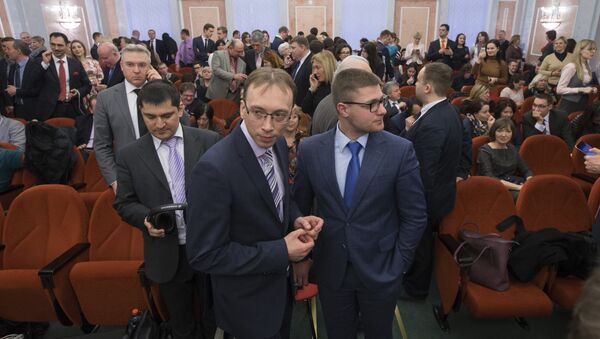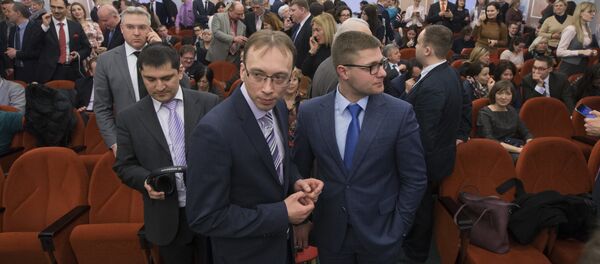Following the ruling, the representatives of the organization declared that the group will appeal against the court's decision, stressing that the organization is prepared to take the case to the European Court of Human Rights.
This decision also prompted a number of prominent European officials, including the Minister of State at UK Foreign and Commonwealth Office Joyce Anelay and Director of the OSCE Office for Democratic Institutions and Human Rights Michael Georg Link, to express concern over the ban and argue that this move infringes on the freedom of religion.
However, Alexander Dvorkin, president of the Association of Centres for the Study of Religions and Sects, told RIA Novosti that these claims are part of a "very aggressive attack against Russia the likes of which we haven’t seen in quite a while."
"They’re trying to portray it as some kind of campaign against faith. But this is not a campaign against faith because the government cannot regulate people’s beliefs, and none of the Jehovah's Witnesses adherents are prohibited from practicing their religion," Dvorkin pointed out.
According to him, the government merely banned a select organization and cut off a substantial flow of money to it – nothing more, nothing less.
"If you so desire, feel free to hold gatherings at your apartments and discuss your religion – no one is going to prevent you from doing so. However, I’m certain that in a few years the number of the organization’s adherents will decrease dramatically – by half or to a third of its original size. Because when the financial basis is cut off, along with the ability to freely recruit other people and rent large halls, people tend to quickly lose interest and begin to scatter. In that regard, this decision was very astute," Dvorkin said.
He also pointed out that the Ministry of Justice’s decision to shut down Jehovah's Witnesses HQ was aimed at protecting the rights of the group’s adherents.
"Jehovah's Witnesses maintains strict control over every aspect of its members’ lives, including even the most intimate moments of their family lives as spouses have to report on one another. All members have to keep an eye on each other, to spy on one another," he said.
Dvorkin ruefully added that he tried several times to contact human rights groups and to make them aware of the plight of people who fell victim of religious sects, but his pleas were ignored.
"Essentially, the struggle for human rights is being supplanted with the struggle for the rights of organizations which violate human rights. This is not human rights activity but rather its exact opposite," Dvorkin surmised.



